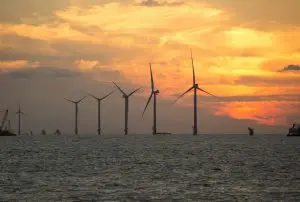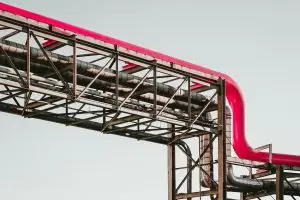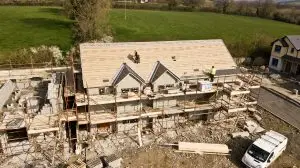1. The Government’s latest Brexit white paper outlined how it envisages a post-Brexit UK-EU nuclear relationship.
The Future Relationship Between the United Kingdom and European Union states that:‘The UK will seek a close association with Euratom that is more comprehensive than any existing agreement between Euratom and a third country’.The document calls for a Nuclear Cooperation Agreement that would establish a ‘cooperation mechanism between the Office for Nuclear Regulation and Euratom, enabling technical information exchanges, joint studies and consultation on regulatory or legislative changes’.(Department for Exiting the European Union, The Future Relationship Between the United Kingdom and European Union, p.45, link)
2. A Hinkley Point C Legal challenge by Austria was rejected.
EU judges upheld a decision allowing the UK government to subsidise nuclear facilities at the new Hinkley Point power station after Austria said the ruling breached EU state aid rules.(The Financial Times, 12 July 2018, link)
3. The Government announced a consultation on nuclear safeguards regulations.
The consultation sets out nuclear safeguards regulations that would be made using the powers granted by the Nuclear Safeguards Act, which last month became one of the first pieces of EU Exit legislation to complete its passage through Parliament and receive Royal Assent.(Department for Business, Energy and Industrial Strategy Press Release, 9 July 2018, link)
4. The Nuclear Industry Association responded to National Grid’s future energy scenarios report.
Tom Greatrex, Chief Executive of the UK’s Nuclear Industry Association, said:‘All of National Grid’s scenarios show we will need more electricity generating capacity to meet demand, as more electric vehicles and heating systems mean we use more power at home, work and in getting from one to the other.‘Civil nuclear power currently provides a constant supply of secure, reliable, low carbon power – and is an integral part of any credible future power mix that both meets anticipated demand and reduces carbon emissions.’(Nuclear Industry Association Press Release, 12 July 2018, link)
5. The Nuclear Decommissioning Authority published its annual report and accounts for 2017-2918.
The NDA exceeded its targets for generating revenue, earning £1.2 billion of income to offset the total £3.3 billion annual budget that is spent on tackling the UK’s historical nuclear legacy.(Nuclear Decommissioning Authority, Annual Report and Accounts 2017 to 2018, 12 July 2018, link)
BREVIA CONSULTING PROVIDES STRAIGHTFORWARD POLITICAL ADVICE AND SUPPORT TO BUSINESSES AND ORGANISATIONS.
Discover how Brevia can provide public affairs support to your organisation by calling the Brevia Energy Team on 020 7091 1650 or emailing contact@brevia.co.uk.




